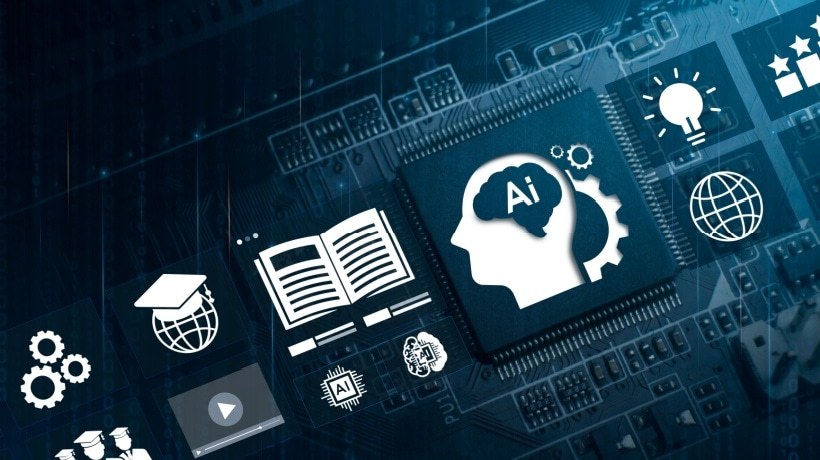AI And Modern eLearning: Revolutionizing Education
In the era of digital transformation, the landscape of education is evolving at an unprecedented pace. Traditional classrooms are giving way to digital learning environments, and this transition has been significantly accelerated by the integration of Artificial Intelligence (AI). In this comprehensive exploration, we will delve into how AI is revolutionizing education, the myriad ways in which it is being harnessed, and the profound implications it holds for learners and educators in the 21st century.
The Evolution of eLearning
Before we embark on the journey of understanding the role of AI in eLearning, it is imperative to trace the evolution of eLearning itself. eLearning has traversed a remarkable path from its nascent stages, characterized by static web pages and rudimentary quizzes, to its present form, featuring multimedia-rich content, interactive simulations, and collaborative online tools. Nonetheless, despite these advancements, traditional eLearning often adhered to a one-size-fits-all approach, posing limitations in terms of personalization and adaptability.
This is where AI steps in, poised to usher in an era of eLearning that is personalized, adaptable, and efficient, catering to the unique needs of each learner.
The Power Of AI Personalization In Modern eLearning
Perhaps one of the most profound contributions of AI to modern eLearning is the power of personalization. In traditional classroom settings, educators often grapple with the challenge of accommodating diverse learning styles, paces, and preferences among their students. AI, with its unparalleled ability to analyze data and adapt in real time, provides a viable solution to this conundrum.
1. Personalized Learning Paths
AI algorithms leverage copious amounts of data, including a student's performance metrics, learning preferences, and pace of progress, to construct tailored learning paths. These learning paths ensure that each learner receives content and materials that align with their individual requirements. For instance, a fast-paced learner may seamlessly progress to more advanced material, while a struggling student can receive additional support and simplified content.
2. Adaptive Learning
AI empowers eLearning platforms to dynamically adjust the difficulty level of course materials in real-time, contingent upon a student's progress. As a result, students who excel are presented with more challenging content to maintain engagement, while those facing difficulties receive simpler content coupled with additional assistance.
3. Intelligent Tutoring Systems
AI-driven Intelligent Tutoring Systems serve as virtual mentors, offering immediate feedback and guidance. These systems possess the capacity to respond to queries, provide detailed explanations, and pinpoint areas where a student might require further assistance. Essentially, it is akin to having a personal tutor available around the clock.
4. Efficiency In Assessment And Feedback
Assessment and feedback constitute pivotal elements of the learning process. However, the manual evaluation of assignments and tests can be time-consuming for educators, often leading to delayed feedback for learners. AI can significantly streamline these processes.
5. Automated Assessment
AI-powered tools are proficient in grading assignments, quizzes, and exams, thereby furnishing learners with instantaneous feedback. This not only conserves educators' time but also ensures the uniform application of evaluation criteria, promoting fairness and consistency.
6. Natural Language Processing (NLP)
Leveraging Natural Language Processing (NLP) technology, AI can assess written assignments, offering automated grading and constructive feedback pertaining to writing skills. It has the capability to scrutinize grammar, syntax, and content, facilitating improvements in students' writing proficiency.
7. Enhanced Content Creation
The creation of engaging and effective eLearning content can be a formidable challenge for educators. AI intervenes to alleviate this challenge.
8. Content Generation
AI is equipped to generate diverse forms of content, such as quizzes, assessments, and even course materials. For instance, AI algorithms can generate multiple-choice questions that align with the course content, enabling educators to dedicate their time to teaching rather than content creation.
9. Content Recommendations
AI algorithms assess a learner's progress and subsequently recommend additional resources or materials that align with their ongoing learning path. This feature empowers learners to explore related topics, further enriching their understanding.
10. Data-Driven Insights
Data stands as a potent asset in the realm of education. AI takes the helm in data analysis, presenting educators with actionable insights into student performance and course effectiveness.
11. Data Analytics
AI algorithms can identify discernible trends and patterns within learner data, equipping educators to make data-informed decisions. For instance, if a specific module consistently results in lower scores, educators can enact modifications to enhance its efficacy.
12. Supporting Learners
AI's support extends beyond content delivery, encompassing valuable assistance throughout learners' educational journeys.
13. Chatbots And Virtual Assistants
AI-driven chatbots stand as invaluable aids to learners, providing immediate responses to queries, offering support, and guiding learners through the intricacies of the learning process. This 24/7 availability ensures that learners receive assistance precisely when they need it.
14. Language Learning
AI-powered language learning platforms offer real-time pronunciation feedback and personalized lessons. Learners can refine their language skills with the aid of AI, rendering language acquisition a more engaging and effective process.
15. Accessibility
AI plays a pivotal role in enhancing accessibility in eLearning. It can automatically generate closed captions and transcripts for video content, thus rendering eLearning materials accessible to individuals with disabilities, thereby fostering inclusivity in education.
Predictive Analytics For Early Intervention
AI's predictive analytics capabilities are pivotal in modern eLearning.
1. Early Intervention
AI possesses the ability to forecast which students may be at risk of falling behind or dropping out, predicated on their learning patterns. Educators can then intervene proactively, furnishing additional support to these learners and potentially averting disengagement.
2. Future Possibilities
The potential of AI in eLearning is boundless, with various innovations on the horizon.
3. Emotion Recognition
AI could be harnessed to analyze learner emotions through facial expressions, body language, or voice tone. This information could be used to tailor teaching approaches based on learners' emotional states, fostering enhanced engagement and motivation.
4. Virtual Reality (VR) And Augmented Reality (AR)
AI-driven VR and AR experiences could immerse learners in virtual environments for practical training, such as medical simulations or engineering experiments, providing a hands-on, immersive learning experience.
5. Advanced Assessment
AI could evolve to develop more sophisticated forms of assessment, such as evaluating problem-solving skills, critical thinking, and creativity, thus offering a more comprehensive evaluation of a learner's capabilities.
6. Global Collaboration
AI-powered translation and real-time language processing could facilitate global collaboration among students from different linguistic backgrounds, transcending language barriers and promoting cross-cultural learning experiences.
Conclusion
AI stands as a formidable force reshaping the landscape of eLearning, ushering in an era that champions personalization, efficiency, and data-driven insights. AI empowers learners to take control of their educational journeys while equipping educators with tools to elevate the quality of teaching and assessment. Yet, as we embark on this transformative journey, it is imperative to approach the integration of AI in eLearning thoughtfully, bearing in mind ethical considerations, data privacy, and accessibility.
The fusion of AI and eLearning is heralding a new era, one in which quality learning experiences are rendered accessible to learners of diverse backgrounds and abilities. As AI technology continues to evolve, we can anticipate a profusion of innovative and transformative developments in eLearning, promising benefits to both learners and educators in our increasingly digital world. This synergy of human intellect and Artificial Intelligence is poised to shape the future of education, transcending boundaries and catalyzing knowledge dissemination on an unprecedented scale.










